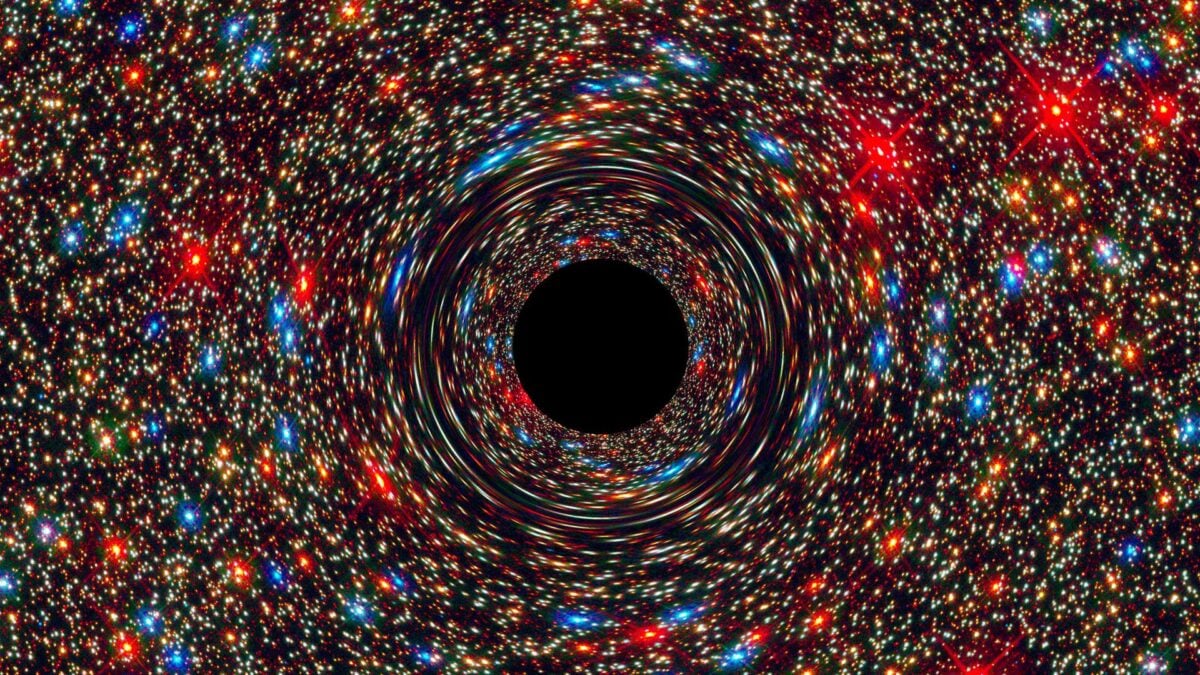What would happen if you got hit by a primordial black hole?
In a study published this summer in the International Journal of Modern Physics D, Vanderbilt University physicist and sole author Robert Scherrer took this question seriously. The bad news is that a large primordial black hole might cause serious injury to the human body—the good news is that there’s probably not enough of them for this to ever happen.
Ancient astronomical bodies
Primordial black holes are theoretical black holes that came to life potentially within a second of the Big Bang. Some researchers suggest that the universe’s dark matter—the mysterious substance that constitutes around 85% of the universe’s mass—is mostly or partially made up of primordial black holes. Their hypothesized masses span from 100,000 times less than a paperclip to as much as 100,000 solar masses.
In a previous study, Scherrer and colleagues investigated how macroscopic dark matter might harm the human body and argued that the absence of such injuries provides insight into the characteristics of this other theoretical dark matter. “I knew that I could carry over some of those calculations to the study of primordial black holes,” Scherrer said in a Vanderbilt University statement.
“Recent observations of gravitational radiation from black hole mergers, as well as new images of black holes, have revived interest in the subject of black holes in general,” he added. “Plus, I remembered reading a science fiction story back in the 1970s where someone dies from having a black hole pass through them—I wanted to see if this would be possible.”
In his recent paper, Scherrer investigated how large a primordial black hole needs to be to seriously injure a person. Specifically, he considered the potential consequences of two gravitational effects—supersonic shock waves and tidal gravitational forces.
Watch out for your cells
Supersonic shock waves are cone-shaped disturbances that result from an object moving faster than the speed of sound. If you were unlucky enough to be struck by a primordial black hole, its shock waves would damage human tissue similarly to a bullet, according to Scherrer.
Tidal gravitational forces, on the other hand, consist of the variation in gravitational strength between two points, which causes a force that acts upon surrounding materials. If that surrounding material were your cells, the force would tear them apart—especially brain cells, which are particularly sensitive to these forces.
While this might all sound terrifying, here’s the good news. “Primordial black holes are theoretically possible, but they might not even exist,” Scherrer pointed out. “A sufficiently large primordial black hole, about the size of an asteroid or larger, would cause serious injury or death if it passed through you. It would behave like a gunshot. A smaller primordial black hole could pass through you, and you wouldn’t even notice it. However, the density of these black holes is so low that such an encounter is essentially never going to happen.”
Long story short—you don’t have to add a fear of primordial black holes on top of stressing over how the heck we’re ever going to afford buying a house.

